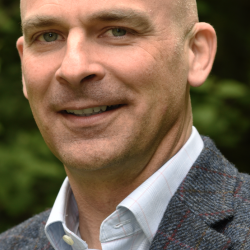Biography
Richard is a clinical academic with over 20 years experience working in the field of health professions education (HPE). On qualifying as a GP (family physician) in 2004 he rapidly became involved in medical teaching, innovation and research, completing a masters degree in 2007. Since then, alongside his clinical role, he has undertaken a range of medical school and NHS roles that have involved leading, developing and researching health professions education. His PhD in medical education (supervised by Karen Mattick, president of the Association for the Study of Medical Education) explored the tension between education provision and service delivery. In 2022 he was awarded Principal Fellowship of the Higher Education Academy, in recognition of his sustained strategic impact in HPE.
As director of GPEG, Richard has expanded clinical teaching capacity, established new arrangements for teaching at scale and led the implementation and scholarly evaluation of a range of teaching innovations, which has impacted clinical teaching practice nationally. His research has been cited in national policy documents and helped inform medical workforce planning. Richard has advised national policy makers on matters involving clinical education and workforce planning, and he played a central role in drafting key guidance for undergraduate medical education in England.
Research
Richard undertakes research and scholarly evaluations in the field of health professions education (HPE). He uses qualitative and quantitative methods to investigate aspects of: work based learning; problem based learning; the clinical consultation; healthcare workforce planning/development; and the organisation and leadership of HPE.
For example, in 2020 Richard led a qualitative evaluation of medical students consulting from home. This was the only evidence referenced by national guidance sent to all medical schools by the UK Medical Schools Council and the published findings helped this novel teaching method to be accepted nationally. Building on this, Richard led an ethnographic study exploring how medical education in primary care had evolved following the major changes to general practice that occurred from 2020 onwards. This was followed by a mixed methods study that was the first to quantify medical student involvement in remote consultations and to understand the degree to which doctors have adapted to supervising these. These studies led to a commissioned BJGP editorial on the use of video consultations in clinical education.
Richard has recently completed a preliminary investigation into the presence and impact of competing institutional pressures, policies and rationales in HPE. He is currently leading a multi-centre cohort study investigating medical student career choice, and the baseline findings have influenced careers strategy at a number of medical schools. Richard also led research into threats to clinical teaching capacity, which was the first study to demonstrate the scale of the ‘space crisis’ in primary care and its impact on medical education. This work was highlighted in a national report on primary care infrastructure and led to a request for national policy advice.
Publications
Full list of publications is available here.
Teaching and Supervisions
As director of the GP Education Group (GPEG) Richard is responsible for the GP component of the Cambridge MB BChir programme, which has an annual intake of over 300 students per year. The GP component comprises around a fifth of clinical placements within the Cambridge medical course (see our video about GP placements). Richard’s team deliver the curriculum through in-house seminars and through a large network of GP practices who are recruited, supported, quality assured and financed by GPEG.
Since starting in post in 2017, Richard has overseen a major increase in GPEG’s teaching and placement activity. He has also piloted horizontally integrated teaching for first and second year students, championed the medical humanities, drafted national funding guidance, and initiated a programme of multi-centre education research – work which is already transforming practice and influencing policy. He represents Cambridge on the Medical Schools Council’s virtual and remote clinical education working group, advises nationally on undergraduate primary care quality & finance, and is also an advisor to UK and overseas medical schools on curriculum and assessment. Richard is senior examiner for the University of Cambridge Master’s degree in Medical Education. He is an examiner for the Royal College of General Practitioners and regularly provides expert tuition and feedback on postgraduate GP consultation skills.
Richard supervises early researchers in medical education.

